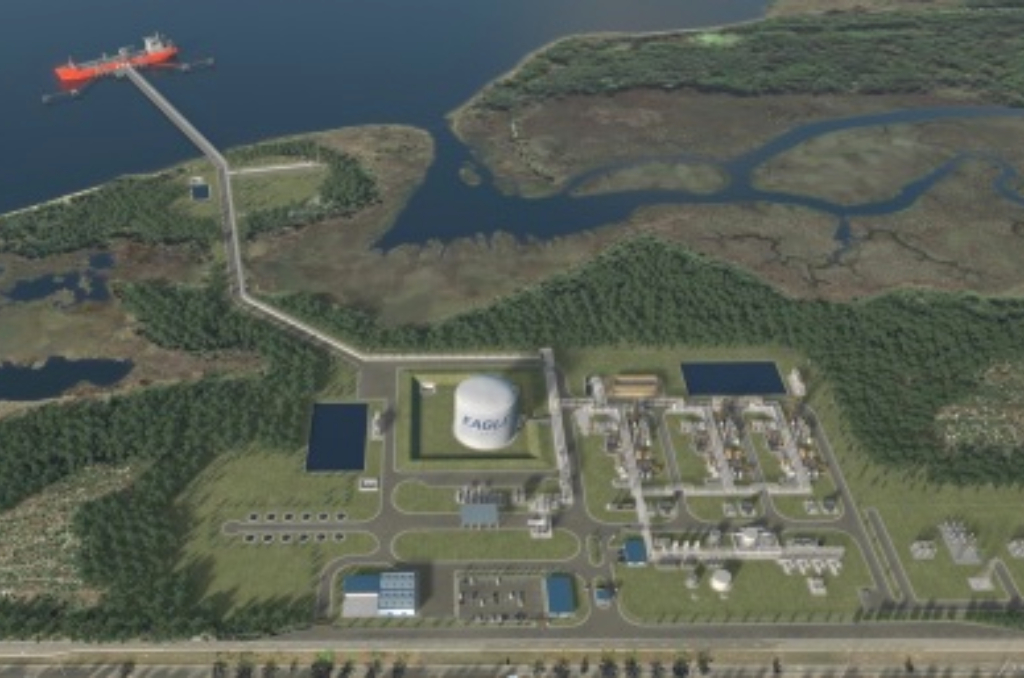Photo credit: Business Wire
After years of effort by local leaders, a manufacturing facility is about to be built in Jacksonville, Florida. The $542 million facility will be able to export natural liquefied gas and position Jacksonville as a leader in gas export to the Caribbean Islands.
The move was approved unanimously by Mayor Lenny Curry’s Budget Review Committee, sending the economic development agreement next to City Council for its vote.
Executives for the Eagle LNG Partners Company based in Houston, Texas gathered around a conference room and talked about how they would be able to accomplish this project. Thanks to imaginative visioning by the local leaders along with Eagle’s financial support, a 200-acre, riverfront tract off Zoo Parkway on the Northside in Jacksonville was selected to be the location of the new plant.
Eagle already has an existing plant on the Westside.
Natural gas exploration has experienced a boom in the nation’s energy industry. A need for creating enough supply for the U.S. to export the gas in a liquefied state is the driving force for this event. This will make fueling for cargo ships to make trips between Jacksonville and Puerto Rico possible and easier.
The need for a liquified gas makes it easier for exporting out. This makes the gas into volumes suited for international carriage. A liquefied gas is a gaseous substance at ambient temperature and pressure, that is liquefied by pressurization or refrigeration and sometimes a combination of the two.
Of the building of the manufacturing facility, Sean Lalani, president of Eagle LNG Partners, said, “First and foremost, when we started looking at a community to undertake a project of this magnitude, it was important for us to find a place where we would be welcomed with open arms.”
The Federal Energy Regulatory Commission voted 2-1 in September to approve Eagle’s application to build on the 200-acre land. The plant will take up less than half of the site. FERC released an environmental impact statement, which found “no direct impacts” to any nearby land animals or their natural habitats.
The Jacksonville Zoo is 1.1 miles away but again the FERC assures no direct impact. The Reddie Point Reserve (1.5 miles away) will also not be affected. The nearby St. Johns River will not be contaminated.
So far, there has been no pushback from residents in regards to the planned LNG facility, according to Jacksonville City Council member Al Ferraro. “It looks like it’s going to be good for the Northeast Florida area,” he said. “I think it will give a lot of service to the area for decades.”
The Company is asking the city for $23 million in incentives to begin construction. A fact sheet drafted by the Wendland legislature says the incentives will offset “financial obligations the company took on as a result of unexpected delays by various federal government permitting agencies.” The City Council must approve this $23 million incentive package for the company by the end of the year.
If approved, Eagle LNG hopes to begin construction in the summer of 2020.
Melissa’s career in writing started more than 20 years ago. Today, she lives in South Florida with her husband and two boys.

